The 2021-2022 HESI Health Assessment Nursing RN V1 exam is a comprehensive test that evaluates a nurse’s knowledge and skills in assessing patients’ health conditions. The exam consists of 100 questions with answers, covering various aspects of health assessment, including psychological status evaluation, substance abuse assessment, vital sign assessment, pain assessment, skin assessment, and more.
Nurses preparing for the HESI Health Assessment Nursing RN V1 exam must familiarize themselves with a wide range of assessment techniques and protocols to provide quality care to their patients. The exam questions are designed to test the nurse’s ability to assess patients accurately and efficiently in different clinical scenarios.
To excel in the HESI Health Assessment Nursing RN V1 exam, nurses should review key concepts related to health assessment, practice with sample questions, and stay updated on the latest developments in the field of nursing.
—
## FAQ
### What topics are covered in the HESI Health Assessment Nursing RN V1 exam?
The exam covers a range of topics including psychological status evaluation, substance abuse assessment, vital sign assessment, pain assessment, skin assessment, and more.
### How can nurses prepare for the HESI Health Assessment Nursing RN V1 exam?
Nurses can prepare for the exam by reviewing key concepts related to health assessment, practicing with sample questions, and staying updated on the latest developments in nursing.
### What is the format of the HESI Health Assessment Nursing RN V1 exam?
The exam consists of 100 questions with answers that assess a nurse’s knowledge and skills in health assessment.
### How important is the HESI Health Assessment Nursing RN V1 exam for nurses?
The exam is essential for nurses as it evaluates their ability to assess patients accurately and provide quality care in clinical settings.
—
## Conclusion
The HESI Health Assessment Nursing RN V1 exam is a crucial evaluation tool for nurses to demonstrate their proficiency in health assessment. By preparing thoroughly and staying updated on key concepts in health assessment, nurses can excel in the exam and enhance their ability to provide high-quality care to patients. Stay focused, study diligently, and practice regularly to succeed in the HESI Health Assessment Nursing RN V1 exam.As a nurse, performing a thorough examination of patients is crucial to assess their overall health and detect any abnormalities or potential health issues. From assessing a baby with a suspected ear infection to evaluating a pregnant woman concerned about changes in her mouth, nurses play a vital role in identifying and addressing patient needs.
In the examination process, nurses use various techniques such as inspection, palpation, percussion, and auscultation to gather information about different body systems. This includes assessing areas like the ears, mouth, heart, lungs, reflexes, and genitalia, among others.
It’s essential for nurses to have a keen eye for detail and a comprehensive understanding of normal findings versus abnormal signs or symptoms. Through effective communication and clinical skills, nurses can provide patients with the care and support they need to maintain or improve their health.
Furthermore, nurses play a significant role in patient education, providing information on self-care practices, warning signs to watch out for, and when to seek medical attention.
Overall, the meticulous examination conducted by nurses is instrumental in promoting early detection of health issues, devising appropriate care plans, and ensuring the well-being of their patients.
—
### FAQs
#### 1. Why is a detailed examination important in nursing practice?
A detailed examination helps nurses assess a patient’s health status, detect any abnormalities or health concerns, and develop appropriate care plans.
#### 2. What techniques are used in a nursing examination?
Nursing examinations may involve inspection, palpation, percussion, and auscultation to assess various body systems and areas.
#### 3. How do nurses assess different body systems during an examination?
Nurses use specific assessment techniques tailored to each body system, such as examining the ears, mouth, heart, lungs, reflexes, and genitalia.
#### 4. What role does patient education play in nursing examinations?
Patient education is essential as nurses provide information on self-care practices, warning signs, and when to seek medical assistance based on examination findings.
—
### Conclusion
Nurses play a crucial role in performing thorough examinations to assess patient health and well-being. By utilizing a combination of assessment techniques and clinical skills, nurses can identify potential health issues, provide necessary care, and educate patients on maintaining their health. Through their meticulous examinations, nurses contribute significantly to early detection, intervention, and patient-centered care, ultimately improving patient outcomes and overall health.Nurses play a crucial role in assessing patients’ health status and providing appropriate care. Through various assessments and interactions, nurses gather essential information that guides their care plans. Let’s delve into some common scenarios and questions that nurses may encounter during their practice:
### FAQs:
**1. What should a nurse consider when assessing a patient’s general appearance?**
– Assess the patient’s skin color, posture, grooming, facial expressions, hygiene, and overall demeanor.
**2. How should a nurse document the fetal position of a pregnant woman with the head facing downward towards the pelvis?**
– This fetal position should be documented as cephalic presentation.
**3. What actions should a nurse take when a patient becomes agitated and confused after recent abdominal surgery?**
– Ensure the patient’s safety by monitoring vital signs, securing any dislodged tubes, and calming the patient while waiting for the physician’s assessment.
**4. How should a nurse handle a situation where a patient refuses to sign a surgical consent form due to lack of understanding?**
– The nurse should involve the healthcare provider to provide further education and clarification to the patient.
**5. What should a nurse do if a patient misses a dose of medication due to refusal or a procedure?**
– Document the missed dose on the medication administration record and follow the facility’s protocol for managing missed doses.
### Conclusion:
Nursing assessments are crucial for providing effective patient care and ensuring positive health outcomes. Nurses must possess strong critical thinking skills, clinical knowledge, and empathy to address patients’ needs effectively. By staying attentive to patients’ conditions, communicating effectively with healthcare teams, and following best practices, nurses can deliver high-quality care in various healthcare settings.


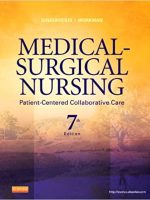
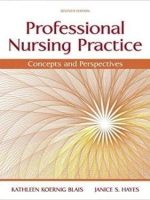
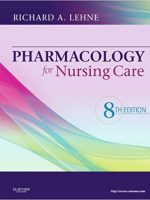
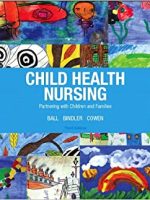
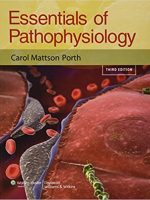
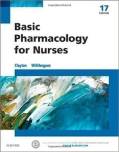

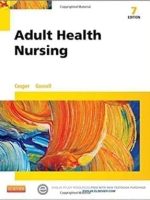
Be the first to review “2021 – 2022 HESI HEALTH ASSESSMENT NURSING RN V1 100 Questions with answers”